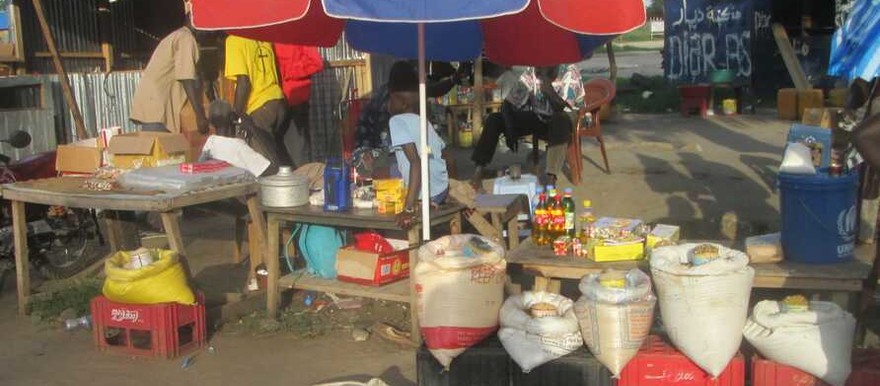Market prices for basic commodities in Bor town of Jonglei State have slightly decreased since last week as the South Sudanese Pound (SSP) gains value against the US dollars.
As of Friday last week, a 50 kg sack of sugar dropped from 23,000 to 16,000 SSP, a 50 kg sack of wheat flour decreased from 21,500 to 18,000 SSP, while a sack of maize flour now sells at 11,000 from 15,000 SSP, and 20 liters of cooking oil dropped from 18,000 to 14,500 SSP.
Speaking to Radio Tamazuj several Bor residents applauded the business community for the price reductions, calling it a relief.
One resident, Amuor Kur, said, “I came to Marol Market to buy a small bag of rice for the family. I realized that it had dropped by 2,000 SSP. I am really happy and I want to see continuous drops so that we meet our expenses.”
Mabior Yuol, another resident, could not hide his happiness either, saying the slight price decrease comes as a relief to them.
A local consumer called on the business community to drop prices to what they were about a year ago before the floods but a Ugandan trader who identified himself only as John, said they incur losses after the local currency gain forced them to drop their prices.
For his part, Joseph Kuir, the Secretary-General of the Jonglei chamber of commerce and agriculture, said the prices began dropping over the past two weeks, attributing it to the prevailing SSP-USD exchange rates.
“This decrease in the prices is due to the pound gaining value against the US dollar. As a business community, we cannot assure our people if the prices will continue dropping or increase again because that depends on the national policy. We will not say that we will not increase the prices again because it depends on sustainability. If the government is going to control the exchange rates then the prices will remain low,” Kuir said.
He called on the government to avail hard currency to the local traders to help stabilize market prices.




